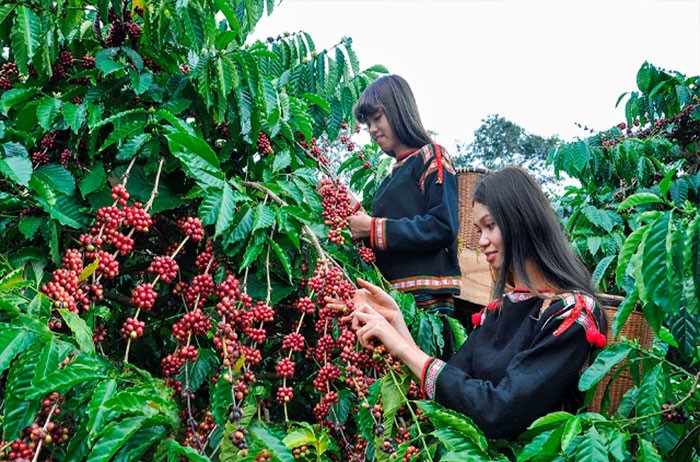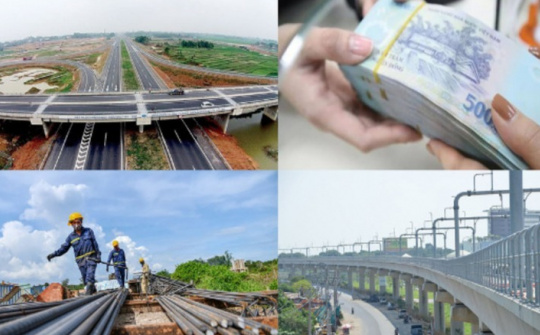
The master plan for the Central Highlands region encompasses the entire administrative areas of 5 provinces: Kon Tum, Gia Lai, Dak Lak, Dak Nong and Lam Dong.
The plan looks forward to developing the Central Highlands into a sustainable region with a green, circular economy by 2050. It aims to establish large-scale production areas for industrial crops, fruits, vegetables, and renewable energy centers nationwide. The plan also aims to establish high-quality tourist destinations, attracting both domestic and international visitors.
The master plan aims to preserve and develop the rich culture and ecological space of the Central Highlands. Forest ecosystems will be preserved and developed, while modern, comprehensive infrastructure will serve as essential foundations for connecting the Central Highlands with major economic centers nationwide, facilitating international economic integration. Cultural identity will be promoted as a foundation for development, ensuring harmonious development between the economy, culture, society, and environmental protection.
The Central Highlands will prioritize the development of large-scale, technology-intensive agricultural sectors
Agriculture will be efficient, ecological, organic, and linked to high-tech agricultural production areas tailored to the natural conditions of each sub-region. Emphasis will be placed on developing key crops such as industrial crops (such as coffee, rubber, cashews, pepper, tea, strawberries, cotton, sugarcane), fruit trees (such as durian, avocado, passion fruit, longan, jackfruit), medicinal plants, Ngoc Linh ginseng, vegetables, temperate flowers linked to processing industries and markets, creating branded products. Livestock farming areas and aquaculture will be concentrated, focusing on cold-water fisheries (salmon, sturgeon).
Agricultural hubs will be established linked to high-tech agriculture and economic corridors, efficiently connecting value chains of agricultural products between localities.
The Central Highlands will develop the forestry economy, improving the livelihoods of forest workers. Restructuring the forestry sector towards sustainability is linked to national target programs. High-tech forestry areas will be established. Sustainable development of a forest-based economy, promoting forest planting in suitable areas, providing a source of raw materials for wood processing factories; continuing sustainable development of material zones to ensure economic efficiency while protecting the environment in logging and wood processing activities.
The Central Highlands prioritize the strong development of process industries
In industrial development, the region prioritizes processing and manufacturing industries, industries with high added value and technological content, and environmentally friendly industries that leverage the region’s advantage in raw materials.Industrial clusters and zones are being formed, along with central urban areas and economic corridors; efficiently linked with industries in the Central Coastal, South Central, and Southeast regions.
The region will also develop mechanical industries to serve agriculture, forestry, agricultural processing industries, mineral exploitation and processing, as well as small-scale handicraft industries in the region...
Developing commerce in harmony between tradition and modernity
The Central Highlands is developing its service sector in a mutually supportive relationship with agriculture and industry, focusing on developing supply and consumption markets within and outside the region through corridors linking the region and major seaports to promote exports to international markets.
The region is promoting trade based on specific conditions of urban and rural markets, combining traditional and modern approaches. It aims to enhance cross-border trade activities based on strengthened investment in infrastructure at some major international border gates.
Logistics services are linked to economic centers and corridors that connect trade activities within the region, between regions, and support the production of goods for domestic sale and export. The region is promoting ecotourism, resort tourism and cultural tourism along with preserving the cultural values of ethnic groups in the Central Highlands. Efforts are being made to improve the quality of tourism products and services, with a focus on the cultural space of the gongs, traditional festivals, coffee culture, and community-based tourism..
Reported by Vu Ngoc Dinh
Translated by Nguyen Minh Trang Anh





